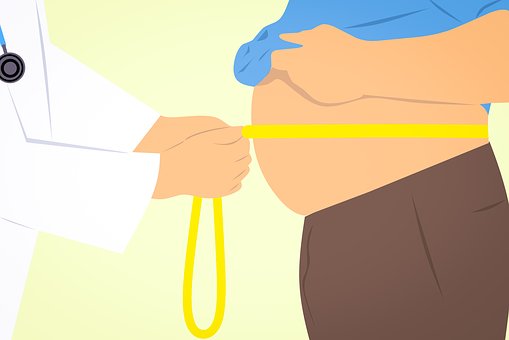The numbers are staggering: 650 million people on the planet are obese, nearly triple the number in 1975, reports the World Health Organization. Moreover the Food and Agricultural Organization reported that more people are suffering from overweight/obesity than from undernutrition.
Obesity — a big problem
Obesity can lead to heart disease, diabetes, skeletal problems, cancers and a slew of other disorders. With nearly three million people dying from obesity-related diseases every year, the world clearly faces more than one pandemic.
Experts agree that the major propellant is the abundance of fat and calorie dense foods paired with lifestyles that are ever more sedentary. When energy consumed tops energy burned, the excess is stored as body fat.
However — as the colossal diet industry attests — it’s not that simple. Given the importance to evolutionary survival, energy balance and reserves are defended or supported by an impressive array of physiological processes. As a result, obesity poses a multi-faceted and stubborn challenge which must be targeted from many directions.
Gut microbiota (GM) is one such area of heightened interest, especially given its important function in energy harvest.
Initial links to GM
Early studies in germ-free (GF) mice revealed striking links between GM and obesity:
- After a microbiota transplant from normal mice, GF mice increased energy harvest and became obese.
- Colonizing GF mice with microbiota from obese individuals increased total body fat more than colonization with a “lean microbiota.”
- Genetically obese mice have a higher proportion of intestinal Firmicutes and 50% fewer Bacteroidetes, than their lean littermates. Moreover, switching from a low-fat, plant rich diet to a high-fat and high-sugar “Western-style” diet increases the relative abundance of Firmicutes at the expense of Bacteroidetes in animal models. And the change can happen fast — within a single day.
Gut microbes in obese humans
As with mice, seminal research in humans showed that the relative abundance of two dominant types of bacteria, Bacteroidetes and Firmicutes, is different in obese and lean individuals. In obese people the relative proportion of Bacteroidetes is decreased compared with lean people. Yet this observation is not consistent across studies, possibly due to confounders such as diet and antibiotic use. For example, in a 2013 clinical trial, researchers demonstrated that the human gut microbiome can rapidly respond to altered diet.
Nevertheless, it is theorized that these microbial changes in GM may contribute to obesity through chronic inflammation, metabolic changes and excessive accumulation of lipids.
Remodeling the GM is an approach under study. These strategies include dietary manipulation such as the use of prebiotics, probiotics or synbiotics, as well as transplantation of fecal microbial communities. This article will be limited to the potential role for probiotics.
Probiotics in obesity
According to one recent review, probiotic organisms may show benefit through numerous mechanisms:
- Strengthening gut walls, which reduce chronic inflammation seen in obesity. A stronger barrier reduces expression of proinflammatory cytokines which may contribute to insulin resistance, oxidative stress, and increased visceral fat deposition.
- Increasing microbes that produce types of short-chain fatty acids with a beneficial effect on body weight
- Generating bacteriocins and organic acids unfavorable to pathogens
- Increasing the amount of organisms such as Akkermansia muciniphila, which may have a positive effect on mucus thickness and intestinal barrier integrity
- Increasing populations of organisms such as Faecalibacterium prausnitzii which may have an anti-inflammatory effect
- Reducing the size of fat cells by decreasing the absorption of fatty acids and increasing the expression of genes associated with the oxidation of fatty acids
Obviously, the relationship between intestinal microbiota and body weight is complex; further research is needed to clarify a role for probiotics in the prevention and treatment of obesity.
Probiotics put to the test
In mice, data suggest that various probiotics may reduce weight gained in response to a high-fat diet and that multi-strain probiotics may prove more effective than single-strain probiotics.
Many clinical studies have also been conducted. A 2020 review titled Probiotics for the Treatment of Overweight and Obesity in Humans—A Review of Clinical Trials presented a summary of 46 select studies using probiotics in humans. See Table 2 in the article for an extensive compilation.
Several large meta-analyses determined that the consumption of probiotics could significantly reduce body weight and BMI. In one looking at 25 trials totaling 1931 participants, the authors concluded: “Consuming probiotics could reduce body weight and BMI, with a potentially greater effect when multiple species of probiotics were consumed, the duration of intervention was ≥8 weeks, or the objects were overweight.”
However, these analyses also reveal ambiguous results on the question of the influence of probiotics in the prevention or treatment of overweight and obesity. As with most clinical use of probiotics, bacterial genus and species, strain, dosage and duration may skew outcomes. Notably, characteristics of the host including age and baseline body weight also appear to determine the effect of probiotics in obesity.
Takeaway
Probiotics may one day be beneficial in helping to prevent or even treat obesity. Optimum strains, doses and duration for therapies must be tested. Of course, probiotics are not magic bullets — there are none — that will replace a healthy lifestyle. But they may prove to be welcome adjuncts in tackling our obesity pandemic.
References
Davis, Cindy D. “The Gut Microbiome and Its Role in Obesity.” Nutrition today vol. 51,4 (2016): 167-174. doi:10.1097/NT.0000000000000167
Ley, Ruth E et al. “Obesity alters gut microbial ecology.” Proceedings of the National Academy of Sciences of the United States of America vol. 102,31 (2005): 11070-5. doi:10.1073/pnas.0504978102
Wiciński, Michał et al. “Probiotics for the Treatment of Overweight and Obesity in Humans-A Review of Clinical Trials.” Microorganisms vol. 8,8 E1148. 29 Jul. 2020, doi:10.3390/microorganisms8081148
Zhang, Qingqing et al. “Effect of probiotics on body weight and body-mass index: a systematic review and meta-analysis of randomized, controlled trials.” International journal of food sciences and nutrition vol. 67,5 (2015): 571-80. doi:10.1080/09637486.2016.1181156

